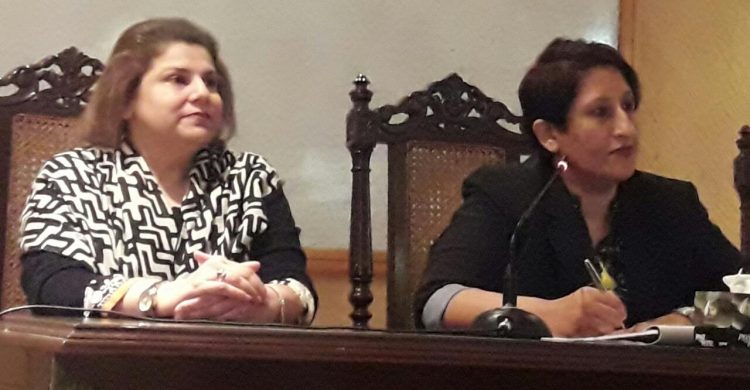
The DSS Department hosted Dr Rabia Akhtar, Director School of Integrated Social Sciences and Center for Security, Strategy and Policy Research (CSSPR), University of Lahore, to a talk on US Non-Proliferation Policy towards Pakistan, on December 20, 2017. The session was moderated by Dr Shabana Fayyaz.
While addressing the audience, Dr Akhtar provided a quick yet comprehensive review of American regimes from Ford, Carter, Reagan, and Bush administrations and how both US and Pakistan used the Cold war environment to fulfil their divergent and converging strategic goals while maintaining a carefully maintained environment of ambiguity denial and concealment which worked to the benefit of both. Both countries needed the other, Pakistan’s role was fundamental in a successful anti Soviet Afghan policy, whereas for Islamabad, Washington was its primary source of conventional military hardware, providing it a qualitative edge over its erstwhile adversary India.
DR Akhtar reviewed the various amendments that concerned Pakistan in these decades related to the latter’s nuclear non-proliferation goals, such as the Solarz amendment, Pressler amendment, Symington and Glenn amendment, Brown, and then Brown-back amendment and the lesser known Harkin Warner amendment. How the amendments affected Pak UZ relations, our strategic weapons’ program as well Pakistan seeking missile technology and strategic cooperation with China and North Korea. Actions which did not sync well with US legislature and non-proliferation goals. But with a discriminatory strategic environment, Pakistan was compelled to seek the alternatives and managed to build its nuclear program.
Responding to questions, Dr Akhtar indulged in candid myth busting, addressing emotional rhetoric and mentioned that one reason for Pakistan seeking non-compliance to US non-proliferation goals was the latter’s lack of understanding of the threat Islamabad actively faced from India. Concluding her talk, she said that Pakistan needs to develop a proactive and independent policy narrative and lead from the front, rather remain reactive to India’s policy gesturing.